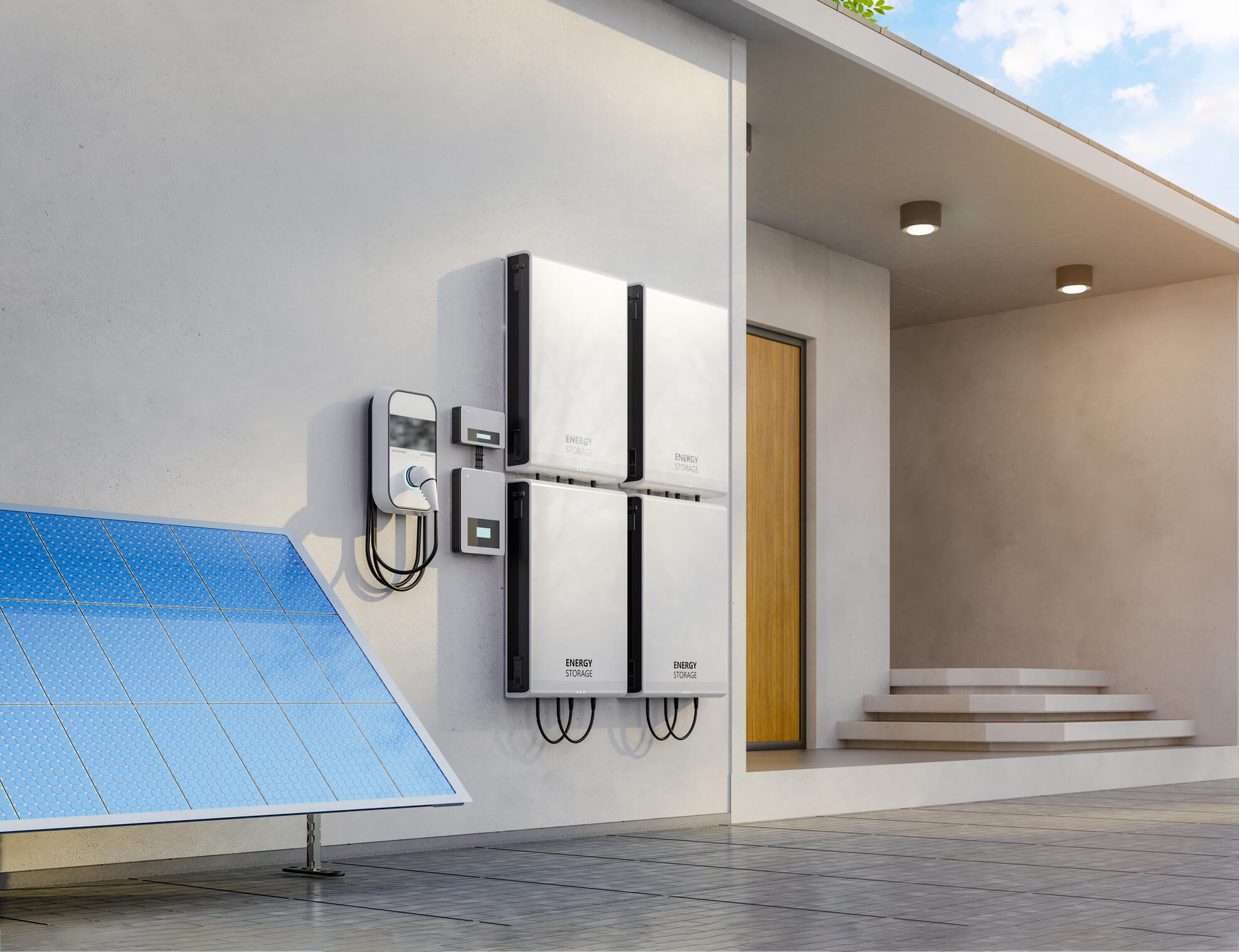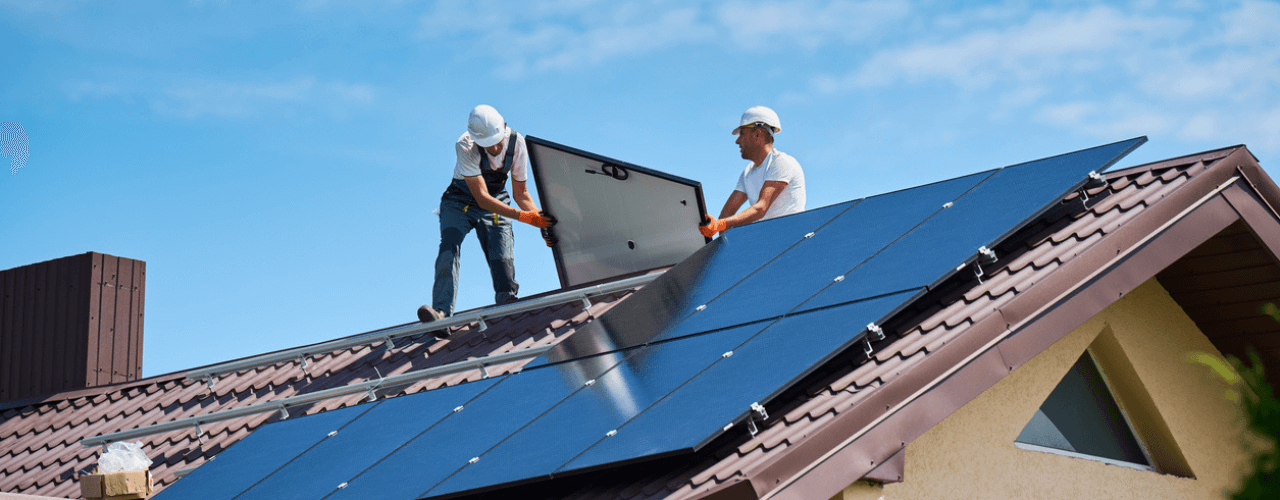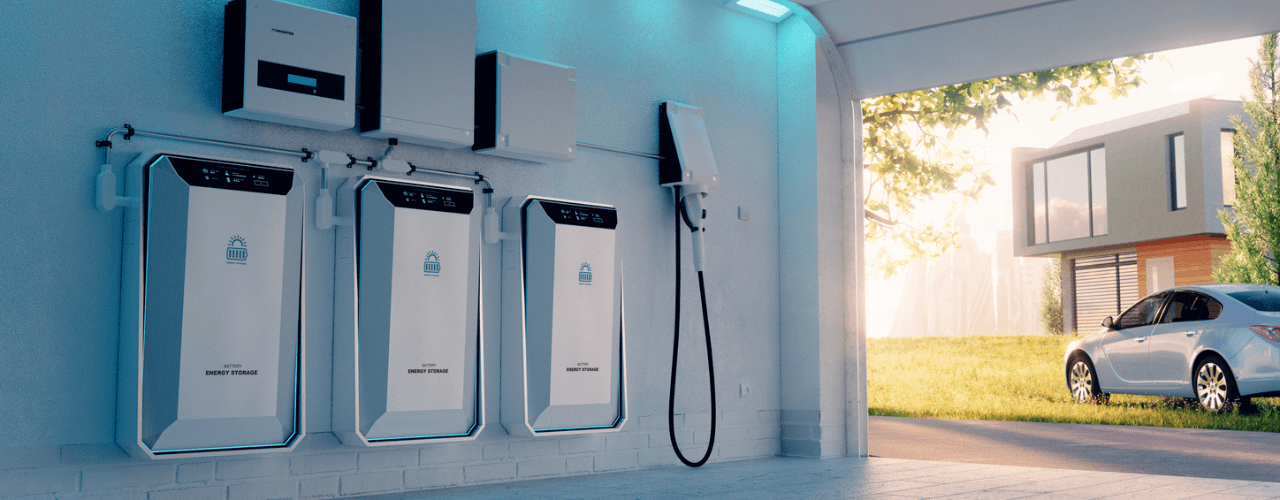
Renewable energy solutions for UK homes and businesses: What are your real options?
Energy bills keep climbing and so does the need to reduce carbon emissions. For UK...

Battery Storage
Solar
The transition to renewable energy is accelerating across the UK, with more homeowners investing in solar electricity battery storage to make the most of their solar panels. By storing excess energy, solar batteries allow households to use solar power even when the sun isn’t shining, reducing reliance on the grid and lowering electricity costs.
But with the high upfront cost of battery storage, many homeowners wonder whether it’s worth the investment. This guide explores the benefits, potential savings, and key considerations when deciding if solar battery storage is the right choice for your home.
Solar battery storage systems store excess electricity generated by solar panels for later use. Instead of exporting surplus energy to the grid, homeowners can keep it on-site and use it when needed, such as during the evening or on cloudy days.
Popular battery systems, such as the Tesla Powerwall, are designed to maximise self-consumption of solar energy, helping homeowners become more energy independent. These batteries can integrate seamlessly with existing solar PV systems and allow users to monitor and control their stored energy through mobile apps.
The cost of solar battery storage varies depending on:
A typical solar electricity battery storage system costs between £3,000 and £9,000, depending on the size and brand. The Tesla Powerwall, for example, starts at around £8,000 before installation costs. For homeowners looking for more affordable options, smaller battery systems with lower capacity (4-6 kWh) can be found in the £3,000-£5,000 range.
While the upfront cost may seem significant, the long-term savings make battery storage a viable investment. Here’s how:
While payback periods for solar batteries can vary, most homeowners see a return on investment within 8 to 12 years.
There are currently no nationwide grants for battery storage alone, but homeowners can still benefit from:
It’s worth checking with your installer or local council to explore additional incentives.
Yes, but their performance depends on solar panel output. During winter, solar PV systems generate less energy, meaning batteries may store lower amounts of excess electricity. However, battery storage is still useful, allowing homeowners to save energy generated during bright winter days and use it when needed.
This depends on the size of the battery and your home’s energy consumption. The Tesla Powerwall (13.5 kWh), for example, can power most essential appliances in an average UK home for several hours. However, during prolonged cloudy periods or high electricity demand, households may still need some grid power.
While it is technically possible, most homes would need multiple batteries and a high-output solar system to remain completely off-grid. The majority of homeowners use battery storage to reduce grid reliance rather than eliminate it entirely.
Most installations do not require planning permission unless you live in a listed building or conservation area. If in doubt, check with your local council before installing a system.
Most lithium-ion batteries last 10-15 years, with warranties covering at least 10 years. Battery lifespan depends on factors such as charge cycles, depth of discharge, and maintenance.
If your battery runs out, your home will automatically draw power from the grid, just like a regular solar PV system without storage.
As the UK moves towards greater energy independence, the solar battery storage market is set to expand rapidly. While upfront costs remain a consideration, advancements in technology, increased manufacturing scale, and government policy changes are expected to make battery storage more accessible and cost-effective in the coming years.
Battery storage prices have steadily declined as lithium-ion technology advances and global production scales up. Research suggests that by 2030, the cost of home battery storage could fall by 30-50%, making solar batteries more affordable for UK homeowners. Additionally, improvements in battery chemistry and energy density will lead to longer-lasting and more efficient storage solutions, further increasing return on investment.
As part of the UK’s push towards net-zero by 2050, the government is expected to expand financial support for home battery installations. Additionally, new smart grid technologies will enable homeowners to participate in peer-to-peer energy trading, where surplus energy can be shared with local communities. This would allow battery owners to monetise their excess power, creating an additional financial incentive for installing solar storage.
With battery technology improving and solar storage becoming more accessible, investing in solar battery storage today means homeowners can future-proof their energy systems, reduce reliance on the grid, and prepare for a smarter, more sustainable energy landscape.
Investing in solar electricity battery storage is a long-term commitment, and choosing the right provider is just as important as selecting the right battery. ESS Group is a trusted name in renewable energy solutions, offering expert guidance, high-quality installations, and tailored systems that maximise energy savings.
ESS Group specialises in custom solar battery storage solutions, ensuring homeowners:
If you’re considering solar battery storage, contact ESS Group today for a consultation and take control of your energy future.

Energy bills keep climbing and so does the need to reduce carbon emissions. For UK...

Commercial solar helps cut costs and hit sustainability targets both smart moves for today’s business...

Home energy habits are changing. As more people install solar panels and adopt smart technologies,...
We’re here to help with all your renewable energy needs.
Contact us today for expert advice, consultations, and support.